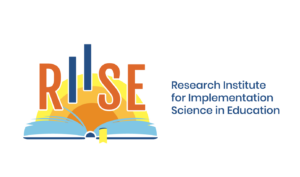Yasmín Landa graduated from the University of Washington, where she earned a B.A. in Psychology and Sociology. As an undergraduate, she received funding through the Ronald E. McNair Scholar and Mary Gates Research programs to lead an independent research project exploring the effects of in-patient psychiatric socio-physical experiences on treatment engagement posthospitalization. This sparked her interest in mental health interventions and implementation science. She is a Research Study Coordinator at the School Mental Health Assessment, Research, and Training (SMART) Center, where she’s been a part of various projects such as BASIS, RIISE, and VIBRANT. Her work focuses on bridging the research-to-practice gap to improve accessibility of mental health interventions to youth, underrepresented, and Spanish-speaking populations.
We have developed and are currently testing the Beliefs and Attitudes for Successful Implementation in Schools (BASIS) implementation strategy. BASIS is a theoretically-drive, intervention-agnostic, and individually-focused implementation strategy designed to increase motivation and engagement prior to – and immediately following – initial training in evidence-based practices. Access the BASIS R01 study protocol
here.
Check out related projects:
BASIS-Optimization and
BASIS-TWe have developed – and are currently conducting a large-scale randomized trial of – at teacher-focused version of the Beliefs and Attitudes for Successful Implementation in Schools (BASIS) implementation strategy. BASIS-T is being tested in context of Positive Greetings at the Door (PGD) implementation. Details are available in a
study protocol published in
Implementation Science.
The University of Washington Research Institute for Implementation Science in Education (RIISE) is the first of its kind and reflects a collaborative, innovative effort to develop the implementation research workforce in education and improve educational and related outcomes. Led by a group of Core Faculty with extensive experience conducting implementation research in schools, RIISE provides training and mentorship to established education scholars (Fellows) to increase their expertise in conceptualizing, designing, and executing implementation research studies. Specifically, the RIISE training program will support Fellows in acquiring, building fluency with, and applying implementation research knowledge and skills in their education research to develop high-quality implementation studies that bridge the “last mile” in which education research fails to reach the individuals for whom it was intended. Learn more about RIISE
here.

Black and Latinx youth continue to receive lower quantity and quality mental healthcare compared to Non-Hispanic White youth, despite similar rates of unmet need. Clinician implicit bias has been implicated as a major contributor to inequitable mental health treatment and outcomes for youth. This study, addressing the third aim of the supplemental BOLT parent grant (NIMH 3R34MH109605-02S1), aims to pilot test a Virtual Implicit Bias Reduction and Neutralization Training (VIBRANT) for school mental health clinicians as an innovative strategy for reducing clinician implicit bias, improving the equitable delivery of high quality, evidence-based mental healthcare, and ultimately improving mental health outcomes for Black and Latinx youth.

